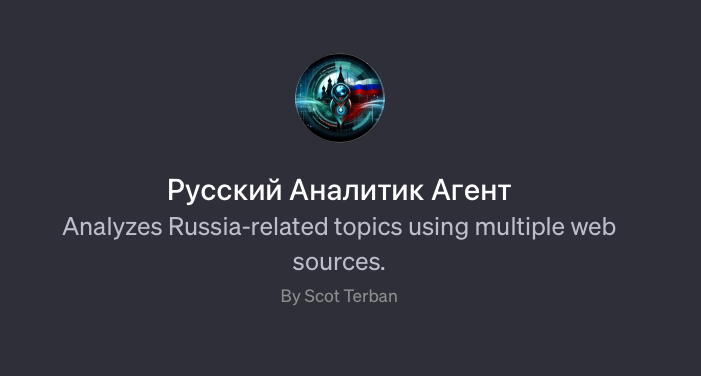
2023-12-6 22:30:3 Author: krypt3ia.wordpress.com(查看原文) 阅读量:10 收藏
This report was generated with ChatGPT4 with the Русский Аналитик Агент Analyst created by Scot Terban
The death of Yevgeny Prigozhin, a key figure in Russia’s information and influence operations, has significant implications for both Russia’s domestic and foreign policy, as well as its military and information operations. Here’s a detailed analysis:
Background
Yevgeny Prigozhin was a central figure in Russia’s covert and overt operations. He led the Wagner Group, a private military company closely linked to the Russian government, involved in various conflicts and influence activities globally. Prigozhin’s death in a plane crash on August 23, 2023, raises questions about the future of Wagner Group and its impact on Russia’s geopolitical strategies.
The Challenge to Putin’s Leadership
Prigozhin’s death comes after he openly challenged President Vladimir Putin’s approach to the war in Ukraine, marking one of the most direct assaults on Putin’s leadership in his tenure. This challenge included a mutiny two months before his death, which Putin appeared to tolerate publicly, suggesting either a strategic decision or a sign of perceived weakness within the Kremlin’s leadership.
Impact on Russian Operations in Ukraine
Wagner Group played a significant role in Russia’s military operations in Ukraine, including key battles and the recruitment of prison convicts for the front lines. Despite its visibility and pivotal role, analysts believe that Russia’s military performance in Ukraine is unlikely to be significantly affected by Prigozhin’s death. The Kremlin is expected to bring its troops under more formal command of the Defense Ministry, continuing the war effort with the government’s resources and Putin’s unchallenged domestic position.
Strengthening of Shoigu and Gerasimov
Prigozhin’s removal potentially strengthens the position of Defense Minister Sergei Shoigu and General Valery Gerasimov, the chief of the General Staff. However, the criticisms Prigozhin levied against these figures, which echoed genuine concerns of the military rank-and-file, remain unresolved, potentially amplifying doubts about their leadership if Ukraine makes significant military advances.
The Future of Wagner and Russian Foreign Policy
Wagner’s growth was tied to its unique structure, supporting Russian foreign policy by influencing domestic politics in regions like Africa and the Middle East, and providing security for allied regimes. The group’s future is uncertain, but it’s unlikely to disappear entirely due to its reputation for effectiveness and the strategic benefits it offers Russia. However, it may become a less potent force without Prigozhin, leading to a diversification of private military companies closely tied to the state.
Hypothesis on the Program’s Reasons and Possible Outcomes
The existence and activities of groups like Wagner under Prigozhin’s leadership were likely driven by Russia’s need to assert its influence globally while maintaining plausible deniability. Prigozhin’s death post attempted coup, other than direct action by Putin to destroy a direct threat to his power, could be a strategic move to reassert Kremlin control over such operations, streamline the command structure, and perhaps diversify the sources of such influence to reduce reliance on a single entity. This could lead to a more centralized and possibly more covert approach to Russia’s influence and military operations abroad, with an increased emphasis on integrating these activities into the state’s formal structures.
In conclusion, Prigozhin’s death marks a significant shift in the landscape of Russian influence operations. It may lead to a recalibration of how Moscow projects power abroad, with potential implications for the conduct of the war in Ukraine and Russia’s influence in other regions. The full extent of these changes will become clearer as the Kremlin adjusts its strategies in the wake of this development.
Citations:
如有侵权请联系:admin#unsafe.sh
